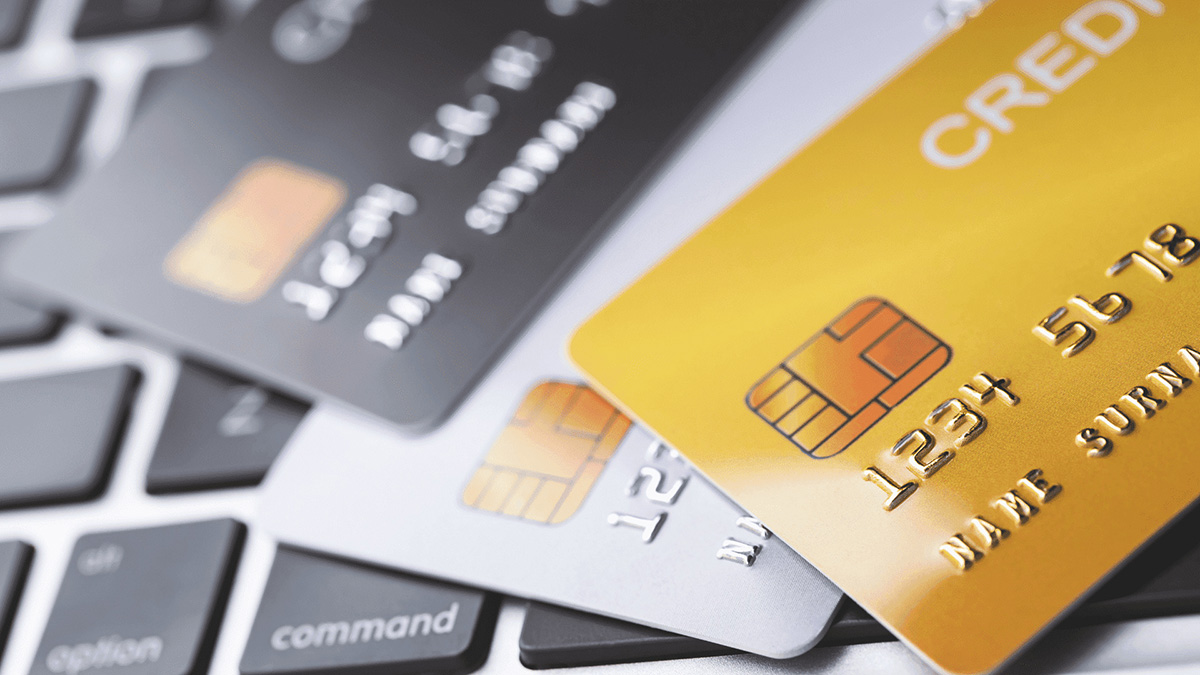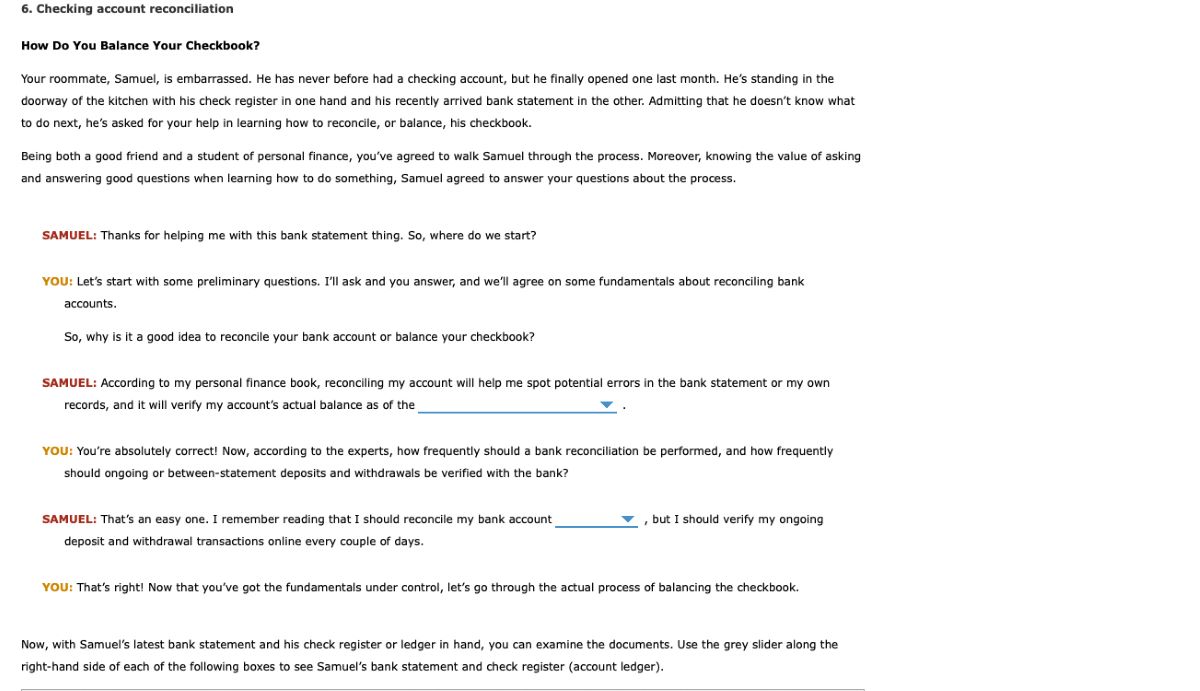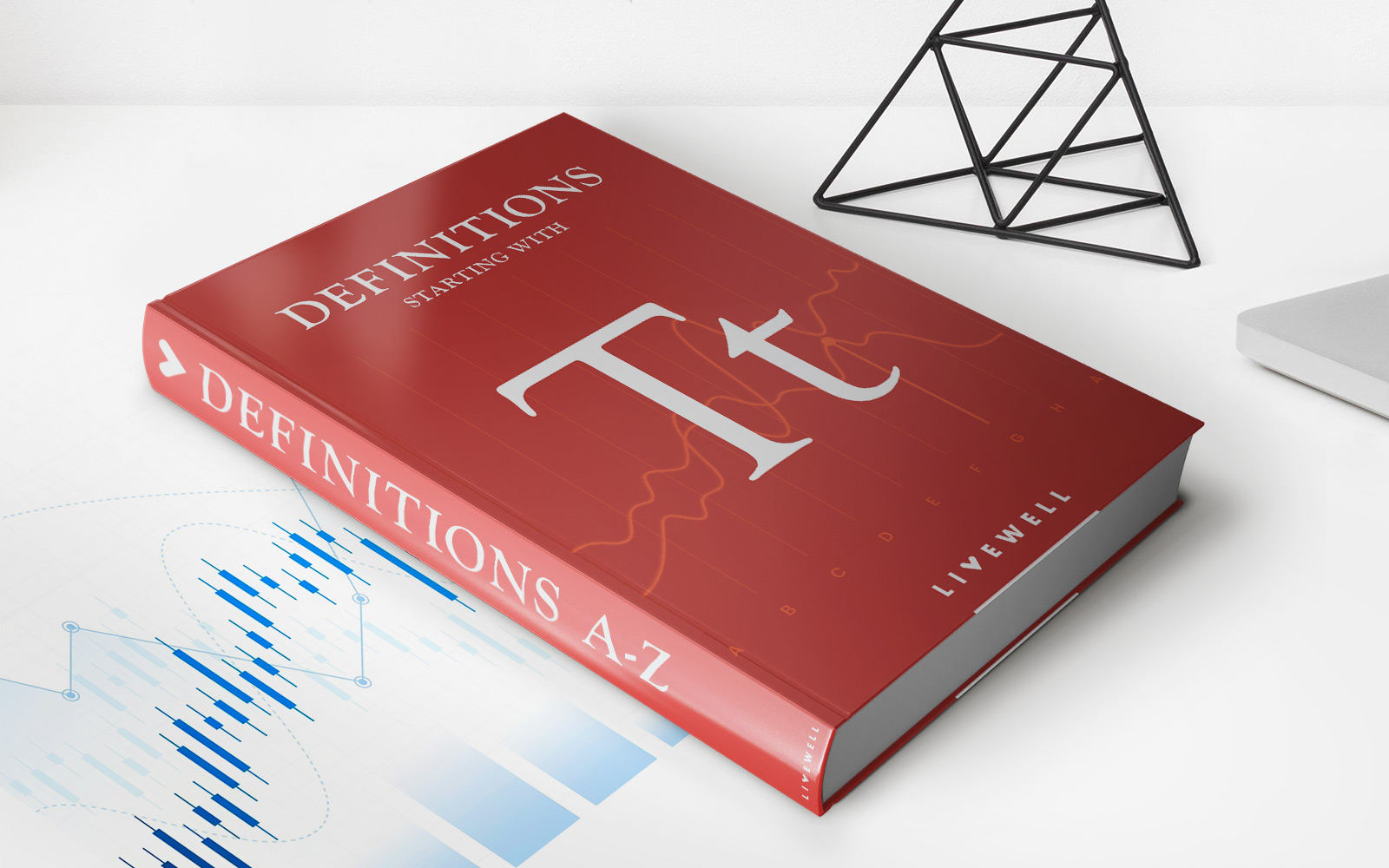

Finance
How Often Should You Check Your Credit Report?
Modified: February 21, 2024
Learn how often you should check your credit report and stay on top of your finances for a better financial future.
(Many of the links in this article redirect to a specific reviewed product. Your purchase of these products through affiliate links helps to generate commission for LiveWell, at no extra cost. Learn more)
Table of Contents
- Reasons to Check Your Credit Report Regularly
- Understanding the Importance of Monitoring Your Credit Score
- Taking Advantage of Free Annual Credit Reports
- Identifying Errors or Inaccuracies on Your Credit Report
- Detecting Signs of Identity Theft or Fraud
- Monitoring Changes and Improvements in Your Credit History
- Establishing Good Credit Habits through Regular Monitoring
- Choosing the Right Timing for Credit Report Checks
- Utilizing Credit Monitoring Services for Continuous Protection
- Final Thoughts: Maintaining Financial Health through Regular Credit Report Checks
Reasons to Check Your Credit Report Regularly
Checking your credit report regularly is crucial for maintaining a healthy financial life. Your credit report contains detailed information about your credit history, including your credit accounts, payment history, and any outstanding debts. By monitoring your credit report on a regular basis, you can stay informed about your creditworthiness and take necessary actions to improve it. Here are a few key reasons why you should make it a habit to check your credit report regularly:
- 1. Identity Theft Protection: Your credit report can reveal any signs of identity theft or fraudulent activities. By reviewing your report, you can spot any unauthorized accounts or suspicious activities that may indicate identity theft. Detecting and resolving these issues promptly can help protect your financial well-being.
- 2. Error Identification: Mistakes on credit reports are not uncommon, and they can negatively impact your credit score. By regularly reviewing your credit report, you can identify and dispute any errors or inaccuracies that may be dragging down your score. Correcting these errors can help improve your creditworthiness.
- 3. Tracking Credit Progress: Monitoring your credit report enables you to track your credit progress over time. You can see how your credit score changes, whether it’s improving or declining, and identify any negative factors that may be affecting your score. This information can guide you in making informed decisions to enhance your creditworthiness.
- 4. Early Warning System: Regularly checking your credit report can act as an early warning system for potential financial troubles. You can identify any late payments, delinquent accounts, or accounts in collections, allowing you to take corrective actions before they severely impact your credit score and borrowing options.
- 5. Unrecognized Accounts: Sometimes, you may discover accounts listed on your credit report that you don’t recognize. It could be a sign of fraudulent activity or a mistake. Regardless, by identifying these unfamiliar accounts, you can take immediate steps to investigate and resolve the issue.
- 6. Building Good Credit Habits: Regularly monitoring your credit report encourages you to develop healthy financial habits. By keeping a close eye on your credit history, you become more aware of the impact of your financial decisions and develop a sense of responsibility towards maintaining good credit.
As you can see, checking your credit report regularly is essential for safeguarding your financial well-being. It enables you to detect and resolve issues such as identity theft, errors, and fraudulent activities. Additionally, it allows you to track your credit progress and build good credit habits. So, make it a habit to review your credit report at least once a year, if not more frequently.
Understanding the Importance of Monitoring Your Credit Score
Your credit score is a crucial aspect of your financial life. It is a numerical representation of your creditworthiness and plays a vital role in determining your eligibility for loans, credit cards, and favorable interest rates. Monitoring your credit score is essential for various reasons, as outlined below:
- 1. Assessing Financial Health: Your credit score reflects your overall financial health. By regularly monitoring it, you can get an accurate picture of where you stand in the eyes of lenders. A high credit score indicates that you are a responsible borrower, while a low score may indicate weaknesses that need improvement.
- 2. Identifying Areas for Improvement: Monitoring your credit score helps you identify factors that may be negatively impacting it. These factors could include late payments, high credit utilization, or a high number of credit inquiries. By being aware of these areas, you can take targeted actions to improve your creditworthiness and raise your score.
- 3. Understanding Lending Eligibility: Lenders often use credit scores as a key factor in determining loan eligibility. A low credit score may result in loan denials or higher interest rates. By monitoring your credit score, you can determine whether you meet the requirements for certain loans or credit cards. This knowledge allows you to adjust your financial strategies accordingly.
- 4. Applying for Major Life Changes: When you plan to make significant financial moves like buying a home or starting a business, monitoring your credit score becomes crucial. These life events often involve substantial borrowing, and a good credit score can help secure favorable loan terms and interest rates.
- 5. Guarding Against Identity Theft: Monitoring your credit score can help you detect any unauthorized activity that may indicate identity theft. Sudden drops in your credit score or the appearance of unfamiliar accounts are potential red flags. By staying vigilant, you can take prompt action to protect your identity and minimize financial damage.
- 6. Tracking the Impact of Financial Decisions: Monitoring your credit score allows you to observe the impact of your financial decisions. By keeping track of your score, you can assess whether opening new credit accounts, paying off debts, or making other financial moves positively or negatively affect your creditworthiness.
By understanding the importance of monitoring your credit score, you can take control of your financial health. Regularly checking your credit score empowers you to make informed decisions, identify areas for improvement, and safeguard against identity theft. Keep in mind that different credit bureaus may provide slightly different scores, so it’s beneficial to monitor all three major credit bureaus’ reports for a comprehensive view of your creditworthiness.
Taking Advantage of Free Annual Credit Reports
As a consumer, you have the right to access your credit reports for free once per year from each of the three major credit bureaus – Equifax, Experian, and TransUnion. Taking advantage of these free annual credit reports is a smart financial move for several reasons:
- 1. Comprehensive Credit Information: By obtaining your free annual credit reports, you can review a comprehensive overview of your credit history from all three major credit bureaus. This allows you to get a complete picture of your creditworthiness and identify any inconsistencies or errors that may exist.
- 2. Verifying Accuracy: It’s important to verify that the information on your credit reports is accurate and up-to-date. Mistakes can happen, and inaccuracies can negatively impact your credit score. By reviewing your free annual credit reports, you can spot any errors or discrepancies and take the necessary steps to correct them.
- 3. Monitoring for Identity Theft: Checking your credit reports annually is an effective way to monitor for any signs of identity theft. Unauthorized accounts, unfamiliar inquiries, or incorrect personal information can indicate fraudulent activity. Detecting these signs early allows you to take immediate action and minimize the potential damage.
- 4. Budgeting and Financial Planning: Your credit reports provide insight into your financial obligations, including outstanding debts and payment history. By reviewing these reports, you can create a realistic budget, assess your debt load, and develop a plan for improving your financial situation.
- 5. Understanding Loan Eligibility: When you’re planning to apply for credit, such as a mortgage or a car loan, it’s essential to know where you stand in terms of creditworthiness. Reviewing your free annual credit reports allows you to understand how lenders may perceive you and make necessary adjustments to increase your chances of approval.
- 6. Financial Awareness and Empowerment: Accessing your free annual credit reports helps you become more financially aware and empowered. It ensures that you have the necessary information to take control of your credit and make informed decisions regarding your financial well-being.
Remember, the process of obtaining your free annual credit reports is simple. Visit AnnualCreditReport.com, the official website authorized by the Federal Trade Commission, to request your reports. You can obtain all three reports at once or stagger them throughout the year for continuous monitoring.
By taking advantage of your free annual credit reports, you can stay on top of your credit and ensure that your financial information is accurate, secure, and reflective of your current financial situation.
Identifying Errors or Inaccuracies on Your Credit Report
Reviewing your credit report regularly is essential for identifying errors or inaccuracies that may be present. Mistakes on your credit report can have a negative impact on your credit score and overall financial health. By taking the time to carefully scrutinize your report, you can identify and address any errors or inaccuracies. Here are some steps to help you in this process:
- 1. Obtain Your Credit Report: Start by obtaining a copy of your credit report from each of the three major credit bureaus – Equifax, Experian, and TransUnion. You are entitled to a free annual credit report from each bureau, and you can access them through AnnualCreditReport.com.
- 2. Review Each Section: Carefully review each section of your credit report, including personal information, credit accounts, payment history, and public records. Look for any discrepancies or errors that may stand out.
- 3. Check Personal Information: Verify that your personal information, such as your name, address, and Social Security number, is accurate. Mistakes in personal information can lead to mix-ups and inaccurate reporting.
- 4. Scrutinize Credit Accounts: Examine each credit account listed on your report. Ensure that the accounts are indeed yours and that each reported detail, such as the balance, credit limit, and payment history, is accurate. Look for any accounts that you don’t recognize or any transactions that seem suspicious.
- 5. Analyze Payment History: Pay close attention to your payment history. Verify that the reported information, including the dates, amounts, and delinquencies, is correct. If you spot any discrepancies or inaccuracies, such as a late payment that you know you made on time, make note of it.
- 6. Addressing Errors: If you find any errors or inaccuracies on your credit report, it’s crucial to take immediate action. Contact the credit bureau reporting the error in writing, provide them with the necessary documentation, and clearly explain the discrepancy. The credit bureau is then obligated to investigate and correct any errors found.
Addressing errors on your credit report can take time and effort, but it’s worth it to ensure the accuracy of your credit information. Remember to keep detailed records of your communication with the credit bureaus, including copies of letters and supporting documents.
Regularly monitoring your credit report and promptly addressing any errors or inaccuracies is essential for maintaining a good credit score and financial health. It helps ensure that your creditworthiness is accurately represented, enabling you to make sound financial decisions and pursue the best opportunities available to you.
Detecting Signs of Identity Theft or Fraud
Identity theft and fraud can wreak havoc on your financial life, so it’s crucial to detect any signs as early as possible. Regularly monitoring your credit report is an effective way to identify potential indicators of identity theft or fraudulent activity. Here are some key signs to watch out for:
- 1. Unfamiliar Accounts: When reviewing your credit report, carefully check for any accounts that you don’t recognize. These could be new credit cards, loans, or other financial accounts that you never opened. Unauthorized accounts are a clear sign of potential identity theft.
- 2. Suspicious Inquiries: Look for any unfamiliar credit inquiries listed on your credit report. If you notice multiple inquiries from companies you haven’t had any dealings with, it could indicate that someone has been applying for credit in your name.
- 3. Inaccurate Personal Information: Verify that your personal information, such as your name, address, and Social Security number, is correct on your credit report. Inaccurate information, such as a different variation of your name or incorrect address, could suggest attempts to change your identity.
- 4. Drastic Drop in Credit Score: Keep an eye on any unexpected and significant drops in your credit score. While it’s normal for your score to fluctuate slightly, a sudden, significant decrease could be a red flag for identity theft or fraudulent activities impacting your credit.
- 5. Unexplained Account Activity: Review your credit accounts and transaction history. Look for any unexplained or unauthorized transactions, such as purchases or withdrawals that you didn’t make. These could be signs that someone else is using your credit.
- 6. Incorrect Reporting: Check for mistakes in your credit report, such as incorrect balances, late payments that you’ve never missed, or accounts listed as in default when they are not. These errors could be indications of fraudulent activity or mistakes resulting from identity theft.
If you detect any signs of identity theft or fraudulent activity on your credit report, it’s crucial to take immediate action. Contact the credit bureaus to report the issues and request a fraud alert or credit freeze on your accounts. Additionally, file a report with your local law enforcement agency and report the crime to the Federal Trade Commission.
Being proactive and regularly monitoring your credit report is key to detecting potential identity theft or fraud early. By remaining vigilant and taking prompt action, you can protect your financial identity and minimize the damage caused by these crimes.
Monitoring Changes and Improvements in Your Credit History
Regularly monitoring your credit history allows you to keep track of any changes or improvements that occur over time. It provides valuable insights into your financial progress and can help guide your actions to enhance your creditworthiness. Here are a few reasons why monitoring changes in your credit history is essential:
- 1. Tracking Credit Score Changes: Checking your credit history enables you to monitor changes in your credit score. It helps you understand how your credit behavior, such as making timely payments or reducing debt, affects your score. By tracking these changes, you can identify which actions positively impact your creditworthiness and continue to make smart financial decisions.
- 2. Evaluating Credit Utilization: Monitoring your credit history allows you to assess your credit utilization – the percentage of available credit that you use. Keeping your credit utilization low is important for maintaining a healthy credit score. By regularly reviewing your credit history, you can identify any patterns of high utilization and make adjustments to keep it within the recommended range.
- 3. Noticing Payment History Improvements: Consistently making on-time payments is crucial for building a positive credit history. By monitoring your credit history, you can track improvements in your payment history over time. This includes identifying any late payments that have fallen off your credit report as they reach the seven-year mark, which can improve your credit score and overall creditworthiness.
- 4. Identifying Closed Accounts: Reviewing your credit history allows you to monitor the closure of accounts. Closed accounts can impact your credit utilization ratio and overall credit history. By keeping an eye on these changes, you can ensure that closed accounts are accurately reported and prevent any negative impact on your credit score.
- 5. Detecting Negative Information Removal: Negative information on your credit report, such as collections or bankruptcies, can significantly impact your credit score. Monitoring your credit history enables you to track the removal of negative items as they age off your report. This can lead to significant improvements in your credit score and open up better financial opportunities in the future.
- 6. Celebrating Financial Milestones: Regularly monitoring your credit history allows you to celebrate milestones in your financial journey. Whether it’s paying off a significant debt or reaching a higher credit score range, recognizing these achievements is a great way to stay motivated and continue practicing good financial habits.
By actively monitoring changes and improvements in your credit history, you gain valuable insights into your financial progress. It helps you understand how your actions impact your credit score and guides you in making informed decisions to improve your creditworthiness. Remember, building good credit takes time and consistent effort, so monitoring your credit history regularly is a crucial component of your financial success.
Establishing Good Credit Habits through Regular Monitoring
Regularly monitoring your credit is not only about keeping track of your financial health but also about establishing good credit habits. By making it a habit to regularly review your credit reports and scores, you can develop a solid foundation for maintaining a healthy credit profile. Here’s how regular monitoring can help you establish good credit habits:
- 1. Encouraging Responsibility: Regularly checking your credit reports and scores fosters a sense of financial responsibility. It reminds you of the importance of staying on top of your credit and encourages you to maintain good habits, such as making timely payments and keeping credit utilization low.
- 2. Promoting Financial Awareness: Monitoring your credit allows you to stay informed about your financial situation. It gives you a clear understanding of your debts, outstanding balances, and payment history. This awareness helps you make informed decisions about your finances and avoid falling into unnecessary debt.
- 3. Spotting Areas for Improvement: By regularly reviewing your credit reports, you can identify areas for improvement in your credit history. This could include paying down outstanding debts, resolving any delinquent accounts, or addressing any errors or inaccuracies on your reports. Taking action on these areas can lead to a healthier credit profile over time.
- 4. Building Trust with Creditors: Regular credit monitoring demonstrates your commitment to maintaining good credit. When creditors see that you actively monitor your credit reports and scores, it can increase their confidence in your creditworthiness. This trust can open doors to better loan terms and credit opportunities in the future.
- 5. Developing Financial Discipline: Monitoring your credit helps develop financial discipline. It encourages you to stay organized with your bills, budget effectively, and make responsible financial decisions. Over time, these habits can lead to improved credit scores and an overall healthier financial lifestyle.
- 6. Preventing Future Issues: Regularly monitoring your credit can help you identify potential issues before they become significant problems. By catching errors, fraud, or identity theft early on, you can take immediate action to resolve them and prevent further damage to your credit.
Establishing good credit habits is crucial for your long-term financial success. Regular monitoring of your credit reports and scores provides you with the information you need to understand your credit health, make positive changes, and stay on track towards your financial goals. By incorporating regular credit monitoring into your financial routine, you can build and maintain a strong credit profile.
Choosing the Right Timing for Credit Report Checks
When it comes to checking your credit reports, timing is important. While there is no one-size-fits-all answer to how frequently you should check your reports, it’s essential to choose the right timing based on your individual financial circumstances. Consider the following factors when deciding when to check your credit reports:
- 1. Annual Check: It’s a good practice to review your credit reports at least once a year. Request your free annual credit reports from each of the three major credit bureaus – Equifax, Experian, and TransUnion – and examine them for any errors or discrepancies. This ensures that your credit information is accurate and up-to-date.
- 2. Before Applying for Credit: If you’re planning to apply for a major loan or credit card, such as a mortgage or car loan, it’s wise to check your credit reports beforehand. This allows you to assess your creditworthiness and address any issues or errors that may impact your application. By doing so, you can increase your chances of approval and secure favorable terms.
- 3. After Significant Financial Changes: If you’ve recently made significant changes to your financial situation, such as paying off a large debt or resolving a delinquent account, it’s a good idea to check your credit reports. This allows you to verify that the changes have been accurately reflected in your credit history and can lead to improvements in your credit score.
- 4. Alert Notifications: If you’ve signed up for credit monitoring services or fraud alerts, pay attention to any notifications you receive. These alerts may indicate potential fraudulent activity or changes to your credit profile. When you receive such alerts, it’s important to check your credit reports promptly to investigate and address any issues that arise.
- 5. Regular Check-Ups: Establishing a routine of checking your credit reports at regular intervals can help you stay proactive about your credit health. You may choose to review your reports every three to six months to keep track of changes, monitor improvement, and detect any errors or unauthorized activities.
- 6. Financial Goals: The timing of your credit report checks can also align with your financial goals. If you’re working towards improving your credit score or achieving a specific financial milestone, you may choose to monitor your credit reports more frequently to gauge your progress and make necessary adjustments.
Ultimately, the frequency of your credit report checks depends on your individual needs and circumstances. Regularly reviewing your credit reports ensures the accuracy of your credit information and allows you to take appropriate action to maintain or improve your creditworthiness. By choosing the right timing for credit report checks, you can stay informed, make informed financial decisions, and protect your credit health.
Utilizing Credit Monitoring Services for Continuous Protection
In today’s digital age, credit monitoring services can provide an extra layer of protection and peace of mind when it comes to your credit and personal information. These services offer continuous monitoring of your credit reports and provide alerts for any changes or potential signs of fraudulent activity. Here are some key benefits of utilizing credit monitoring services:
- 1. Early Warning System: Credit monitoring services act as an early warning system, alerting you to any significant changes on your credit reports. This includes new accounts opened in your name, changes to your personal information, or unfamiliar inquiries. By receiving timely notifications, you can quickly respond to potential identity theft or fraudulent activity.
- 2. Continuous Monitoring: Credit monitoring services provide ongoing monitoring of your credit reports from all three major credit bureaus – Equifax, Experian, and TransUnion. This ensures that you receive comprehensive and up-to-date information about your credit history, allowing you to detect any errors or discrepancies as they occur.
- 3. Fraud Detection and Resolution: In the unfortunate event of identity theft or fraud, credit monitoring services can help you navigate the process of resolving the issue. They often offer support and assistance in dealing with creditors, credit bureaus, and law enforcement agencies. This can save you time and provide expert guidance during a stressful situation.
- 4. Credit Score Monitoring: Many credit monitoring services also provide continuous monitoring of your credit scores. This allows you to track your creditworthiness over time and stay informed about any changes that may impact your credit score. Monitoring your credit scores can help you identify areas for improvement and take necessary steps to build and maintain a strong credit profile.
- 5. Identity Theft Insurance: Some credit monitoring services offer identity theft insurance as part of their packages. This insurance provides coverage for expenses related to resolving identity theft, such as legal fees, lost wages, or fraudulent charges. Having this added protection can provide financial assistance and peace of mind in the event of a security breach.
- 6. Convenience and Peace of Mind: Utilizing credit monitoring services offers convenience and peace of mind. With continuous monitoring and alerts, you can rest assured knowing that your credit is being actively monitored for any suspicious activity. It allows you to focus on other aspects of your life and financial goals, knowing that your credit is being protected.
While credit monitoring services can provide valuable protection, it’s important to carefully research and choose a reputable provider. Look for services that offer comprehensive monitoring, timely alerts, and robust support in case of identity theft or fraud. Remember that credit monitoring is just one component of a comprehensive approach to safeguarding your personal and financial information.
By utilizing credit monitoring services, you can have continuous protection, early detection of potential issues, and proactive management of your credit health. This added layer of security can play a vital role in maintaining your financial well-being and providing peace of mind.
Final Thoughts: Maintaining Financial Health through Regular Credit Report Checks
Regularly checking your credit reports is an essential practice for maintaining your financial health and protecting your creditworthiness. By taking the time to review your reports, you can ensure that your credit information is accurate, identify potential errors or discrepancies, and detect signs of identity theft or fraudulent activity. Here are some final thoughts on the importance of regular credit report checks:
- 1. Empowerment: Regularly monitoring your credit reports empowers you as a consumer. It allows you to stay informed about your financial status and make informed decisions about your credit and borrowing options. By having access to accurate credit information, you can take control of your financial well-being.
- 2. Financial Well-being: Your credit plays a central role in your financial well-being. Regular credit report checks help you understand your creditworthiness, track changes over time, and identify areas for improvement. By proactively managing your credit, you can enhance your financial opportunities, secure better loan terms, and save money in the long run.
- 3. Early Detection: Regular credit report checks allow for early detection of any errors or signs of fraudulent activity. By catching these issues early on, you can take immediate action to rectify them and minimize the potential damage to your credit and finances. Early detection is key to mitigating the negative impacts of credit-related problems.
- 4. Building Good Credit Habits: Regular monitoring of your credit reports encourages the development of good credit habits. It promotes responsible financial behavior by keeping you aware of your credit utilization, payment history, and overall credit profile. Through continuous monitoring, you can identify areas for improvement and consistently work towards building a strong credit history.
- 5. Peace of Mind: Regularly checking your credit reports can provide you with peace of mind. Knowing that you are actively monitoring your credit and staying vigilant against potential threats such as identity theft or fraudulent activities can alleviate stress and allow you to focus on your financial goals with confidence.
- 6. Take Action: Regular credit report checks serve as a reminder that you have the power to take control of your financial future. If you discover errors, inaccuracies, or signs of identity theft, it’s important to take immediate action by contacting the credit bureaus, disputing errors, and implementing necessary security measures. By being proactive, you can safeguard your credit and maintain financial stability.
Maintaining financial health requires diligence and proactive effort. Regular credit report checks are an integral part of this process. By incorporating this practice into your financial routine, you can stay informed, identify and address issues promptly, and build a solid foundation for a healthy credit profile. Remember, your credit history impacts your financial opportunities, so make it a priority to regularly check your credit reports to ensure your financial well-being.














